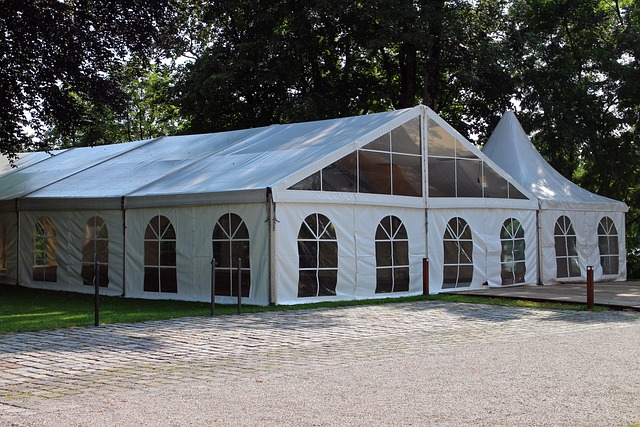Event planning for local businesses is a powerful tool for promoting social good and strengthening community ties by aligning charity events with causes that resonate with both the business and the local community. These events not only amplify fundraising efforts but also raise awareness for significant issues, serving as platforms for sharing stories and enriching lives, thus fostering a culture of involvement and philanthropy. Local businesses can strategically leverage their resources, networks, and influence to ensure event success by selecting accessible venues, securing appropriate sponsorships, engaging with local media for promotion, and incorporating interactive features like volunteer roles, educational workshops, and family activities. Careful attention to every aspect of event planning from logistics to marketing is crucial for creating an impactful and successful charity event that benefits the community and establishes the local business as a vital part of its neighborhood. The ideal event combines immersive experiences such as themed galas with interactive elements like silent auctions, live entertainment, and competitive challenges, all while integrating advanced technologies to simulate real-life scenarios, thus enhancing empathy and encouraging charitable giving. Local businesses can further engage attendees by offering special products or services in support of the charity and provide post-event incentives, ensuring that event planning is about more than just brand promotion—it's a means to create meaningful impact and encourage community involvement in a charitable context.
Charity events serve as a powerful nexus of community engagement and philanthropy, expertly orchestrated by local businesses through event planning for local businesses. These initiatives not only foster a sense of unity but also amplify the impact of charitable endeavors. This article delves into the nuances of leveraging community spirit, mastering logistics, and engaging audiences with innovative fundraising activities. Join us as we explore the strategies that transform a charity event into a catalyst for meaningful change.
- Leveraging Community Spirit: How Local Businesses Can Plan Charity Events That Make an Impact
- Strategic Venue Selection and Logistical Mastery for Successful Charity Events
- Engaging the Audience: Innovative Ideas for Fundraising Activities in Charity Events Organized by Local Businesses
Leveraging Community Spirit: How Local Businesses Can Plan Charity Events That Make an Impact

When local businesses collaborate with community members and organizations to plan charity events, they tap into a powerful force for good – community spirit. Effective event planning for local businesses involves identifying causes that resonate with both the business and the community, ensuring the event’s purpose aligns with shared values. By partnering with charitable organizations, local businesses can amplify their impact while fostering a sense of unity and collective action. These events not only raise funds but also awareness for important causes. They provide a platform for stories to be told and lives to be touched, creating a ripple effect that can inspire further community engagement and support.
To make these charity events truly impactful, local businesses should leverage their unique resources, influence, and networks. This includes selecting accessible venues, securing relevant sponsorships, and engaging with local media to promote the event. Additionally, incorporating interactive elements such as volunteer opportunities, educational workshops, and family-friendly activities can enhance the event’s appeal. By meticulously planning each aspect of the charity event, from logistics to marketing, local businesses can ensure a successful outcome that benefits all parties involved, solidifying their role as pillars of their communities.
Strategic Venue Selection and Logistical Mastery for Successful Charity Events

When orchestrating a charity event that resonates with local communities and draws the support of businesses, strategic venue selection is paramount. Choosing a venue that aligns with the event’s mission and has a strong community presence can significantly enhance guest engagement and local business involvement. Venues that offer adaptable spaces for auctions, performances, or dining experiences provide versatility that caters to the diverse activities within charity events. Accessibility, parking availability, and proximity to the target audience are critical considerations that ensure convenience and maximum attendance.
Logistical mastery complements venue selection by addressing the intricate details that underpin successful event execution. This includes meticulous planning for guest flow, vendor coordination, and the seamless integration of technology, such as registration systems and digital payment platforms. Adequate staffing, clear signage, and contingency plans for potential issues are essential components of logistical excellence. By leveraging local businesses for services ranging from catering to entertainment, events can showcase community support while also providing a platform for businesses to enhance their public image and brand visibility. This symbiotic relationship benefits both the charity and local enterprises, fostering a supportive network that amplifies the event’s impact and effectiveness.
Engaging the Audience: Innovative Ideas for Fundraising Activities in Charity Events Organized by Local Businesses

local businesses play a pivotal role in the success of charity events through event planning that engages the audience and maximizes fundraising potential. To captivate attendees and encourage participation, innovative activities are essential. Consider hosting a themed gala with immersive decor to create an unforgettable atmosphere. Interactive elements like silent auctions with unique items or experiences, coupled with live music or performances, can draw guests into the festivities. Another effective strategy is incorporating competitive challenges, such as charity sports tournaments or trivia nights, which foster a sense of community and teamwork. These events not only entertain but also effectively convey the cause’s importance, driving donations and support. Businesses can further enhance audience engagement by leveraging technology, such as virtual reality experiences that simulate the conditions faced by those the charity supports, providing a powerful empathy tool to inspire generosity.
In addition to immersive activities, local businesses can set up booths at the event to showcase their products and services with a charitable twist. For instance, a portion of sales from specially marked items or services provided during the event could be donated directly to the charity. This not only promotes the business’s brand but also directly contributes to the cause. Moreover, businesses can engage attendees by offering exclusive deals or discount codes valid for a limited time after the event, incentivizing contributions while providing value to participants. By integrating these innovative fundraising activities into their event planning for local businesses, charity organizers can create impactful events that resonate with attendees and foster a spirit of giving and community involvement.
Charitable endeavors have long been a pillar of community enrichment, with local businesses playing a pivotal role in their success. This article has illuminated the importance of event planning for local businesses in harnessing community spirit and strategically selecting venues to host impactful charity events. By implementing innovative fundraising activities, these events not only raise crucial funds but also foster stronger connections within communities. Local businesses are uniquely positioned to orchestrate such events, which can significantly benefit charitable causes and leave a lasting legacy of goodwill. As we conclude, it’s clear that with careful planning and a commitment to community engagement, local businesses can expertly organize charity events that resonate and make a meaningful difference.
